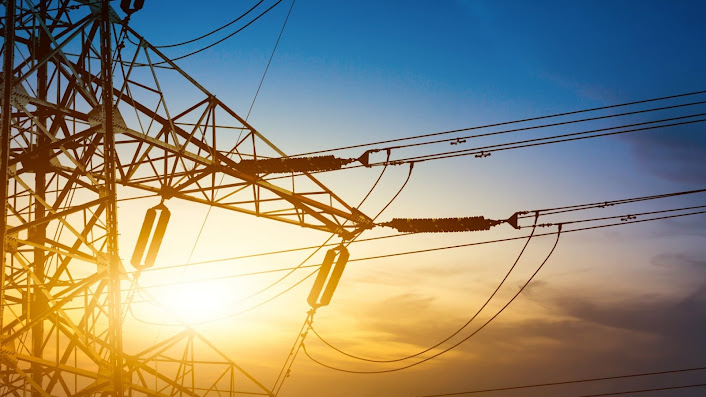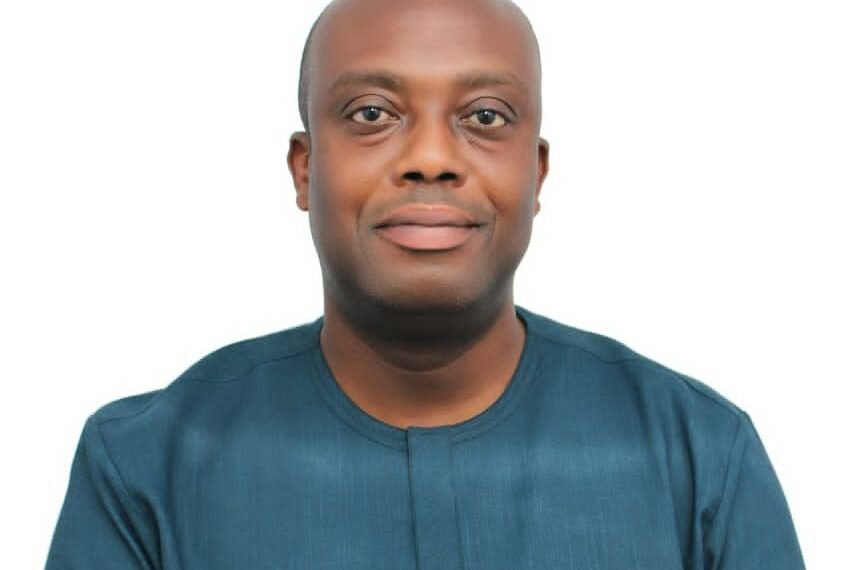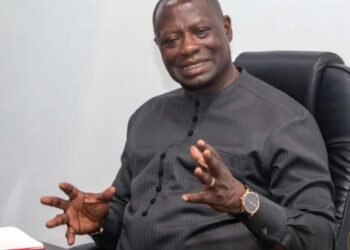The Government of Ghana has reaffirmed its commitment to achieving universal electricity access by 2030, emphasizing the crucial role of private sector investment in realizing this ambition.
At the Mission 300 Ghana Compact Review Workshop held in Accra, Deputy Minister for Finance, Hon. Thomas Nyarko Ampem, speaking on behalf of Minister for Finance Cassiel Ato Forson, made a compelling case for innovative and sustainable financing mechanisms to support the nation’s energy transformation.
“Projects under Mission 300 must be financially viable and structured within the framework of Ghana’s existing international commitments.
“We are committed to designing initiatives that attract concessional finance, leverage private sector capital, and utilize innovative financing models such as blended finance and public-private partnerships.”
Deputy Minister for Finance, Hon. Thomas Nyarko Ampem
Mission 300 is a flagship energy access initiative under Ghana’s National Energy Compact, which aligns with the United Nations’ Sustainable Energy for All (SEforALL) program.
The initiative aims to bring reliable and affordable electricity to underserved and off-grid communities, while also supporting the country’s broader climate and sustainability objectives.
The Deputy Minister acknowledged the fiscal pressures that come with large-scale infrastructure expansion.

He stressed that any new energy projects must be aligned with Ghana’s macroeconomic framework and debt management strategy.
“Our approach must ensure that energy projects contribute positively to economic growth without imposing unsustainable financial burdens on the state.
“We must avoid increasing contingent liabilities while pursuing our energy goals.”
Deputy Minister for Finance, Hon. Thomas Nyarko Ampem
Stakeholders at the workshop included development partners, energy sector players, regulatory bodies, and representatives from financial institutions.
The event provided a platform to evaluate progress, share insights, and recalibrate strategies under the Mission 300 roadmap.
A key theme running through Hon. Nyarko Ampem’s address was the necessity of fostering a robust investment climate to attract both local and international partners.
“We must promote private sector participation through risk-sharing frameworks that protect public finances.
“This is not just about investment; it’s about creating a viable ecosystem for growth that benefits our citizens while ensuring fiscal integrity.”
Deputy Minister for Finance, Hon. Thomas Nyarko Ampem
Private Sector Involvement a “Non-Negotiable”

A recurring theme during the workshop was the need for public-private partnerships (PPPs) and blended financing to bridge Ghana’s energy access gap. Mr. Nyarko Ampem was clear in his appeal:
“We must move beyond reliance on state funding and embrace the private sector as a true partner in development.
“This is not just about investment; it’s about creating a viable ecosystem for growth.”
Deputy Minister for Finance, Hon. Thomas Nyarko Ampem
The Ministry of Finance, he said, is committed to collaborating with the Ministry of Energy and Green Transition (MoEnGT), regulatory agencies, and international development partners to harmonize fiscal policies and investment incentives that will attract private capital.
The Mission 300 Ghana Compact Review Workshop brought together a wide cross-section of stakeholders, including energy sector actors, donor agencies, financiers, and policy makers.
The aim was to assess progress to date and chart a realistic path to achieving Ghana’s 2030 universal energy access target.
Stakeholders engaged in robust discussions on financing options, technical solutions, and regulatory reforms needed to scale up energy access, particularly in off-grid and underserved areas.
According to Mr. Nyarko Ampem, this process must be rooted in realism.

“We need pragmatic and fiscally responsible solutions. This is a crucial step in Ghana’s journey toward a sustainable and inclusive energy economy.”
Deputy Minister for Finance, Hon. Thomas Nyarko Ampem
He urged stakeholders to engage constructively, warning that without bankable, investor-friendly energy projects, the Mission 300 goals could stall.
As Ghana seeks to close its energy access gap, the call for deeper private sector collaboration signals a transformative shift in the country’s energy strategy.
Mission 300 represents not only an infrastructure goal but also a strategic economic pivot toward inclusive, sustainable, and climate-resilient development.
Hon. Nyarko Ampem urged all participants at the workshop to approach discussions with a focus on “pragmatic and fiscally responsible solutions,” describing the event as a critical milestone in Ghana’s energy journey.
The Mission 300 Ghana Compact thus stands as a testament to the government’s resolve to bridge the energy divide through strategic partnerships, sound financial stewardship, and unwavering commitment to sustainable development.
READ ALSO: Equities Tread Water as Policy Rate Remains at 28%, Financial Analyst Warns























